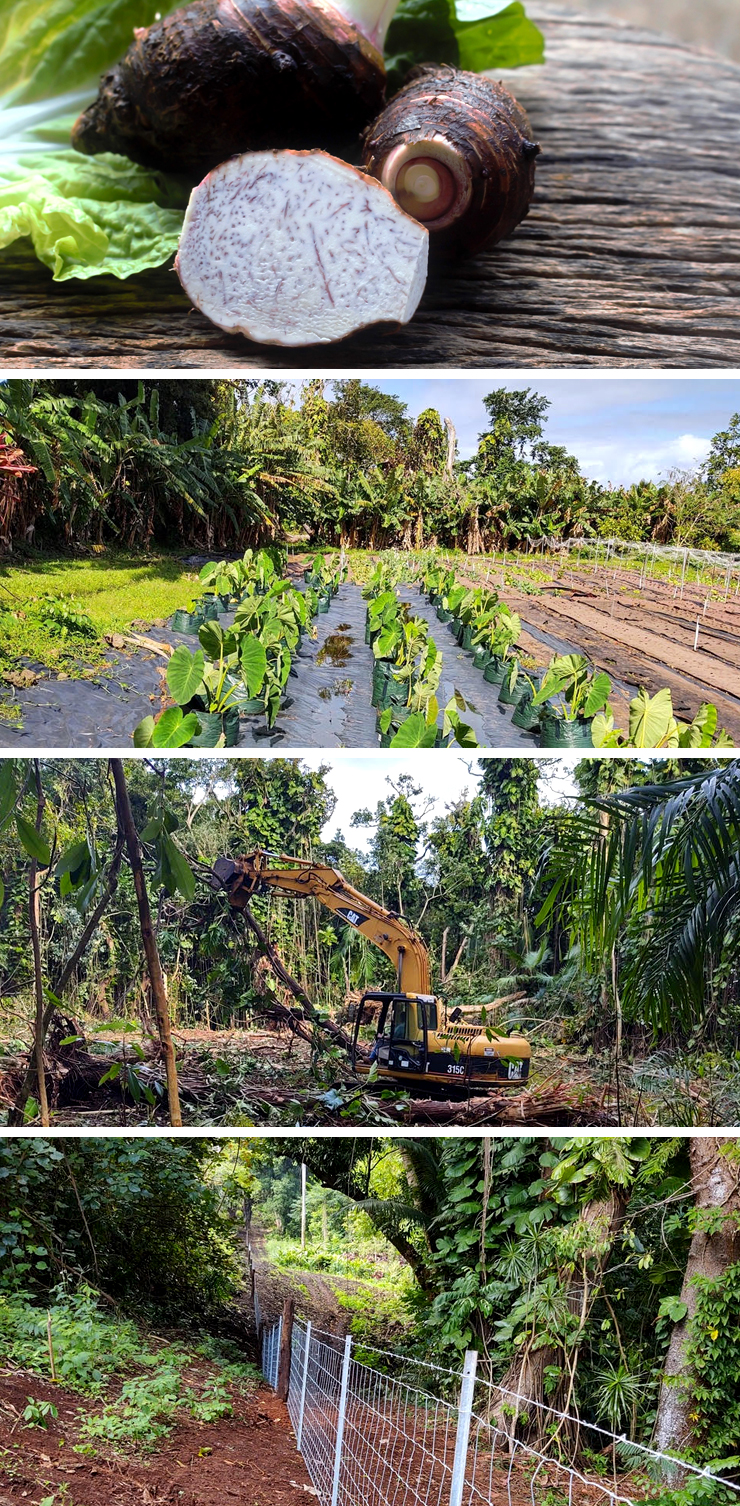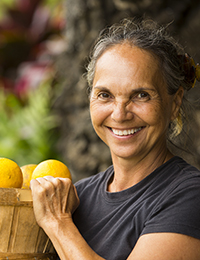Restoring Community Health
As a valued patient of Hāna Health, you have the opportunity to participate in our exciting new program “Mai e’ Ai – Come let’s eat Hawaiian style!”
Prior to colonization, Native Hawaiian were very healthy, with hardly any chronic health conditions.
The goal if this program is to restore your good health by moving away from the unhealthy western diet to the traditional Hawaiian diet.
Eat like your life depends on it!
The traditional Hawaiian diet is one of the most wholesome diets in the world, consisting of:
- Taro
- Poi
- Fish
- Sweet Potatoes
- Ulu
- Fruit
- Leafy Vegetables
By participating in the Mai e‘ Ai program, Hana Health is responsible for:
- Providing you with a weekly grocery bag containing traditional Hawaiian foods
- Education on the cultural importance of the traditional Hawaiian diet to the health of you and your ‘Ohana
You will be responsible for:
- Signing a consent to participate in the program
- Completing and submitting a weekly food log
- Obtaining an annual wellness exam and lab work
By removing barriers and increasing access to traditional foods, the expected outcome is a healthier you and a healthier Hana.
For more information, contact: Sassie Keaulana at 248-7515 #41

Hana Health Awarded ANA Grant
The Administration for Native Americans has awarded Hana Health a $1,161,343 grant over three years for the project “Restoring Community Health”. Project support is also provided by Honu‘apo, a Native Hawaiian Organization and long-time partner in Hana Health’s wellness programs. The goal of the project is to reduce the number of Hana District Native Hawaiians with poorly managed diabetes and hypertension, or who are high risk overweight/obese through a transition to a more traditional diet. Hana Health intends to expand its Hana Fresh farm operation to include the cultivation of traditional food crops – kalo, sweet potato, ulu and others – for distribution to Hana Health’s diabetic patients and those patients who are high risk overweight. Hana Health will also be looking to source product from local kalo farmers and fishermen when project implementation gets underway in February 2021. Poor access to traditional Hawaiian food crops is an important factor influencing food choice, especially for low-income consumers. Food insecurity is associated with poor physical health, diabetes, and hypertension. Nearly half of Hawaiʻi residents with diabetes are food insecure and 42% of those with heart disease or a history of stroke are food insecure. The COVID-19 pandemic has further impacted food security as job losses negatively impact household income while the cost of most food is increasing. It is expected that improving access and transitioning back to a more traditional diet will help to restore good health to the Native Hawaiian community.
![]()
